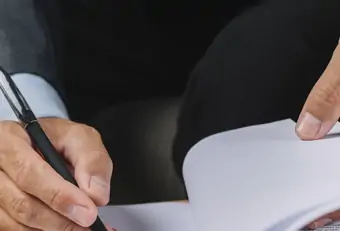Greenville, SC Legal Malpractice Lawyer

Greenville, SC Legal Malpractice Attorney
Attorneys help their clients handle complex legal matters through their comprehensive legal knowledge and skillful representation. However, lawyers can occasionally make errors or provide grossly substandard services to their clients.
When this happens, it can cause significant harm to you and your case, affecting outcomes and impeding justice. If you believe an attorney was negligent with you and your case, contact a Greenville, SC legal malpractice lawyer today.
While it may seem daunting to put trust in a new attorney to help you resolve issues you had with another, it is important that you pursue justice and hold negligent parties accountable, no matter who they are. You are entitled to recover damages for any loss you experienced, even when it is the result of another legal professional.
Legal Malpractice Representation in Greenville, SC
The Tatum Law Firm, PLLC, understands the value and necessity of trust in client relationships. Everyone who seeks our legal counsel should know that they are being provided with the utmost care and attention in their case. Our team has over 20 years of experience handling cases for our clients, including legal malpractice cases involving the negligence of other legal professionals.
We understand how to identify and prove negligence in cases involving a variety of practice areas. Our aim is to ensure that you receive justice and can recover what was lost to you as the result of attorney negligence.
If you have reason to believe that your lawyer breached their duty of care towards you, let us assess your case through a consultation and begin the process of building a malpractice case as soon as possible.
What Is Legal Malpractice in Greenville, SC?
With any type of malpractice case in Greenville, SC, the foundation of the claim revolves around the idea of lawyer negligence. Lawyers are susceptible to mistakes, and different lawyers will vary in their skills and ability to handle complex cases – sometimes greatly so.
However, when a lawyer or other legal professional acts in some way or fails to act in some way that is contrary to how another legal professional with a similar background experiencing the same circumstances would have acted, then they can likely be found guilty of negligence. In the most egregious of cases, this negligence was intentional and may include malicious acts, such as fraud. However, even unintentional acts that harm a client can be considered negligent.
What Does Legal Malpractice Look Like in Greenville, SC?
Everyone is entitled to competent legal counsel, regardless of their case or background. Therefore, lawyers are expected to maintain a workload that allows them to sustain a high standard of care for every client they represent.
Here are some common examples of legal malpractice claims:
- Fail to communicate. Inadequate communication alone may not be negligent, but lawyers are expected to promptly communicate significant developments in a case with their clients.
- Fail to meet deadlines. If you don’t file a case within the statute of limitations, you lose the legal ability to pursue a claim. Lawyers are expected to complete paperwork in a timely manner, meeting all deadlines imposed during a case.
- Neglect investigations. Inadequate investigative work can result in failure to procure valuable evidence or witness testimony on which the entire case could hang. Lawyers are expected to do their due diligence in this area of representation. Failing to find a piece of evidence alone does not indicate negligence. It matters whether another legal professional in the same situation would have reasonably found that piece of evidence or not.
- Demonstrate incompetence. This can be challenging to prove, but omitting important defenses, incorrectly interpreting the law, or inappropriately applying legal principles can all demonstrate that a lawyer is not upholding a standard expected of a legal professional.
- Violate rules or ethics. Lawyers are bound to client confidentiality. Breaking this trust can have severe consequences. Additionally, all settlements must be agreed upon by clients. A lawyer could be guilty of malpractice if they broke client confidentiality or accepted a settlement offer without their client’s consent.
- Abuse their power. Finally, a lawyer’s job is to protect their client’s rights and advocate for their client’s interests. Using the attorney-client relationship for personal gain, such as by misusing client funds, contradicts what lawyers should stand for and represents an illegal act of malpractice.
How Do You Prove Legal Negligence in Greenville, SC?
Proving negligence in a legal malpractice claim follows the same steps as other types of negligence cases. Your claim must demonstrate three things clearly:
- Your lawyer owed you a duty of care. Attorney-client relationships are legally protected in many ways due to several assumptions. If a lawyer is providing representation services, then they owe a duty of care to uphold the standards expected of a lawyer. Generally, any receipt showing the exchange of retainer fees or other fee agreements is enough to establish this relationship.
- Your lawyer breached their duty. Regardless of intent, any act or lack of action on the lawyer’s part that does not meet the standards expected of an attorney could constitute a breach of their duty. Testimony from another legal professional is helpful to get another perspective on what could have reasonably been done by a competent lawyer in the same circumstance.
- You suffered actual harm as a result of the breach. The harm you suffered as a result of the negligence should be demonstrated. In most cases, this harm is financial, as a negligent lawyer may have impeded your ability to earn an expected settlement amount. In that case, the malpractice claim would seek to recover the difference.
With the help of a South Carolina malpractice lawyer, you can demonstrate each of these elements and successfully bring a claim against a negligent attorney. Let a member of the team at the Tatum Law Firm, PLLC, assess the details of your case and help you determine the evidence necessary to prove malpractice occurred in your case.
What Is Malpractice Insurance in Greenville, SC?
Most lawyers carry malpractice insurance to cover themselves in the event that a malpractice claim is brought against them. While not mandated by state law, malpractice insurance is beneficial for both clients and lawyers. For lawyers, it establishes the financial means to cover the damages in a malpractice case if they lose.
For clients, it can reassure them that they will be covered in the event their lawyer commits malpractice, as any compensation they miss could be recovered in a claim that would be covered by the insurance. Working with an attorney who maintains this insurance is reassuring because it demonstrates their commitment to ethical and professional standards and mitigates the risk of suffering harm due to legal errors made by the attorney.
Greenville, SC Legal Malpractice Law FAQs
Q: What Are the Limits for Malpractice in South Carolina?
A: No two legal malpractice cases are the same. South Carolina does not currently have any set limits on these types of claims, but there are some general guidelines that can be helpful in understanding the thresholds for compensation awards. Because legal malpractice claims seek to rectify cases that suffered as a result of legal malpractice, settlements will usually revolve around the extent of losses experienced as a result of the malpractice.
Q: Is It Better to Settle in a Legal Malpractice Lawsuit?
A: Every malpractice case is unique and will vary depending on the details of your circumstance. In most cases, a malpractice case will settle out of court. The average settlement offer is lower than the average jury award. However, settlement offers a resolution, whereas going to trial can risk the possibility of losing your case. Going to court can also take a long time, cost more in legal fees, and take a heavy emotional toll.
Q: How Long Do You Have to File a Claim for a Legal Malpractice Case in South Carolina?
A: To file a legal malpractice claim, you must file your case within the statute of limitations. In South Carolina, the statute of limitations for malpractice is three years following the date of the incident. In some cases, that time frame may instead start at the time at which an individual could have reasonably discovered legal negligence had taken place. Despite the legal window, it is highly recommended that you file as soon as possible for the greatest chance of success.
Q: What Is the Cap on Damages in a South Carolina Tort Claims Act?
A: When bringing claims against the state or municipality, you cannot recover more than $300,000 in damages. If there is more than one claimant, no more than $600,000 can be recovered from a single occurrence. This means that legal malpractice claims against government attorneys have a cap on the damages awarded. This cap does not apply to private practitioners, as there is no limit on the damages you can recover against private attorneys.
Contact Your Greenville, SC Legal Malpractice Attorney Today
The right legal team can protect your rights and hold negligent parties accountable, even those who were supposed to uphold your interests from the start. By putting your trust in the attorneys at the Tatum Law Firm, PLLC, you can fight to regain the outcome you were entitled to and begin to recover the losses you experienced as a result of your lawyer’s negligence. Contact our office today to get started.






